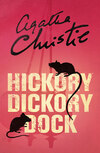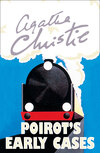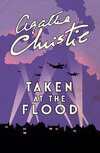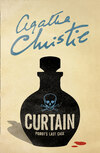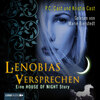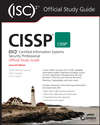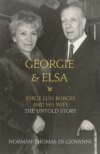Kitabı oku: «Elephants Can Remember», sayfa 3
BOOK 1
CHAPTER 3
Great Aunt Alice’s Guide to Knowledge
‘Can you find my address book for me, Miss Livingstone?’
‘It’s on your desk, Mrs Oliver. In the left-hand corner.’
‘I don’t mean that one,’ said Mrs Oliver. ‘That’s the one I’m using now. I mean my last one. The one I had last year, or perhaps the one before that again.’
‘Has it been thrown away, perhaps?’ suggested Miss Livingstone.
‘No, I don’t throw away address books and things like that because so often you want one. I mean some address that you haven’t copied into the new one. I expect it may be in one of the drawers of the tallboys.’
Miss Livingstone was a fairly new arrival, replacing Miss Sedgwick. Ariadne Oliver missed Miss Sedgwick. Sedgwick knew so many things. She knew the places where Mrs Oliver sometimes put things, the kind of places Mrs Oliver kept things in. She remembered the names of people Mrs Oliver had written nice letters to, and the names of people that Mrs Oliver, goaded beyond endurance, had written rather rude things to. She was invaluable, or rather, had been invaluable. ‘She was like—what was the book called?’ Mrs Oliver said, casting her mind back. ‘Oh yes, I know—a big brown book. All Victorians had it. Enquire Within Upon Everything. And you could too! How to take iron mark stains off linen, how to deal with curdled mayonnaise, how to start a chatty letter to a bishop. Many, many things. It was all there in Enquire Within Upon Everything.’ Great Aunt Alice’s great standby.
Miss Sedgwick had been just as good as Aunt Alice’s book. Miss Livingstone was not at all the same thing. Miss Livingstone stood there always, very long-faced with a sallow skin, looking purposefully efficient. Every line of her face said ‘I am very efficient.’ But she wasn’t really, Mrs Oliver thought. She only knew all the places where former literary employers of hers had kept things and where she clearly considered Mrs Oliver ought to keep them.
‘What I want,’ said Mrs Oliver, with firmness and the determination of a spoilt child, ‘is my 1970 address book. And I think 1969 as well. Please look for it as quick as you can, will you?’
‘Of course, of course,’ said Miss Livingstone.
She looked round her with the rather vacant expression of someone who is looking for something she has never heard of before but which efficiency may be able to produce by some unexpected turn of luck.
If I don’t get Sedgwick back, I shall go mad, thought Mrs Oliver to herself. I can’t deal with this thing if I don’t have Sedgwick.
Miss Livingstone started pulling open various drawers in the furniture in Mrs Oliver’s so-called study and writing-room.
‘Here is last year’s,’ said Miss Livingstone happily. ‘That will be much more up-to-date, won’t it? 1971.’
‘I don’t want 1971,’ said Mrs Oliver.
Vague thoughts and memories came to her.
‘Look in that tea-caddy table,’ she said.
Miss Livingstone looked round, looking worried.
‘That table,’ said Mrs Oliver, pointing.
‘A desk book wouldn’t be likely to be in a tea-caddy,’ said Miss Livingstone, pointing out to her employer the general facts of life.
‘Yes, it could,’ said Mrs Oliver. ‘I seem to remember.’
Edging Miss Livingstone aside, she went to the tea-caddy table, raised the lid, looked at the attractive inlaid work inside. ‘And it is here,’ said Mrs Oliver, raising the lid of a papier-mâché round canister, devised to contain Lapsang Souchong as opposed to Indian tea, and taking out a curled-up small brown notebook.
‘Here it is,’ she said.
‘That’s only 1968, Mrs Oliver. Four years ago.’
‘That’s about right,’ said Mrs Oliver, seizing it and taking it back to the desk. ‘That’s all for the present, Miss Livingstone, but you might see if you can find my birthday book somewhere.’
‘I didn’t know …’
‘I don’t use it now,’ said Mrs Oliver, ‘but I used to have one once. Quite a big one, you know. Started when I was a child. Goes on for years. I expect it’ll be in the attic upstairs. You know, the one we use as a spare room sometimes when it’s only boys coming for holidays, or people who don’t mind. The sort of chest or bureau thing next to the bed.’
‘Oh. Shall I look and see?’
‘That’s the idea,’ said Mrs Oliver.
She cheered up a little as Miss Livingstone went out of the room. Mrs Oliver shut the door firmly behind her, went back to the desk and started looking down the addresses written in faded ink and smelling of tea.
‘Ravenscroft. Celia Ravenscroft. Yes. 14 Fishacre Mews, S. W.3. That’s the Chelsea address. She was living there then. But there was another one after that. Somewhere like Strand-on-the-Green near Kew Bridge.’
She turned a few more pages. ‘Oh yes, this seems to be a later one. Mardyke Grove. That’s off Fulham Road, I think. Somewhere like that. Has she got a telephone number? It’s very rubbed out, but I think—yes, I think that’s right—Flaxman … Anyway, I’ll try it.’
She went across to the telephone. The door opened and Miss Livingstone looked in.
‘Do you think that perhaps—’
‘I found the address I want,’ said Mrs Oliver. ‘Go on looking for that birthday book. It’s important.’
‘Do you think you could have left it when you were in Sealy House?’
‘No, I don’t,’ said Mrs Oliver. ‘Go on looking.’ She murmured, as the door closed, ‘Be as long as you like about it.’
She dialled the telephone and waited, opening the door to call up the stairs: ‘You might try that Spanish chest. You know, the one that’s bound with brass. I’ve forgotten where it is now. Under the table in the hall, I think.’
Mrs Oliver’s first dialling was not successful. She appeared to have connected herself to a Mrs Smith Potter, who seemed both annoyed and unhelpful and had no idea what the present telephone number might be of anyone who had lived in that particular flat before.
Mrs Oliver applied herself to an examination of the address book once more. She discovered two more addresses which were hastily scrawled over other numbers and did not seem wildly helpful. However, at the third attempt a somewhat illegible Ravenscroft seemed to emerge from the crossings out and initials and addresses.
A voice admitted to knowing Celia. ‘Oh dear, yes. But she hasn’t lived here for years. I think she was in Newcastle when I last heard from her.’
‘Oh dear,’ said Mrs Oliver, ‘I’m afraid I haven’t got that address.’
‘No, I haven’t got it either,’ said the kindly girl. ‘I think she went to be secretary to a veterinary surgeon.’
It did not sound very hopeful. Mrs Oliver tried once or twice more. The addresses in the latest of her two address books were no use, so she went back a bit further. She struck oil, as you might put it, when she came to the last one, which was for the year 1967.
‘Oh, you mean Celia,’ said a voice. ‘Celia Ravenscroft, wasn’t it? Or was it Finchwell?’
Mrs Oliver just prevented herself in time from saying, ‘No, and it wasn’t redbreast either.’
‘A very competent girl,’ said the voice. ‘She worked for me for over a year and a half. Oh yes, very competent. I would have been quite happy if she had stayed longer. I think she went from here to somewhere in Harley Street, but I think I’ve got her address somewhere. Now let me see.’ There was a long pause while Mrs X—name unknown—was seeing. ‘I’ve got one address here. It seems to be in Islington somewhere. Do you think that’s possible?’
Mrs Oliver said that anything was possible and thanked Mrs X very much and wrote it down.
‘So difficult, isn’t it, trying to find people’s addresses. They do send them to you usually. You know, a sort of postcard or something of that kind. Personally I always seem to lose it.’
Mrs Oliver said that she herself also suffered in this respect. She tried the Islington number. A heavy, foreign voice replied to her.
‘You want, yes—you tell me what? Yes, who live here?’
‘Miss Celia Ravenscroft?’ ‘Oh yes, that is very true. Yes, yes she lives here. She has a room on the second floor. She is out now and she not come home.’
‘Will she be in later this evening?’
‘Oh, she be home very soon now, I think, because she come home to dress for party and go out.’
Mrs Oliver thanked her for the information and rang off.
‘Really,’ said Mrs Oliver to herself, with some annoyance, ‘girls!’
She tried to think how long it was since she had last seen her goddaughter, Celia. One lost touch. That was the whole point. Celia, she thought, was in London now. If her boyfriend was in London, or if the mother of her boyfriend was in London—all of it went together. Oh dear, thought Mrs Oliver, this really makes my head ache. ‘Yes, Miss Livingstone?’ she turned her head.
Miss Livingstone, looking rather unlike herself and decorated with a good many cobwebs and a general coating of dust, stood looking annoyed in the doorway holding a pile of dusty volumes.
‘I don’t know whether any of these things will be any use to you, Mrs Oliver. They seem to go back for a great many years.’ She was disapproving.
‘Bound to,’ said Mrs Oliver.
‘I don’t know if there’s anything particular you want me to search for.’
‘I don’t think so,’ said Mrs Oliver, ‘if you’ll just put them on the corner of the sofa there I can look at them this evening.’
Miss Livingstone, looking more disapproving every moment, said, ‘Very good, Mrs Oliver. I think I will just dust them first.’
‘That will be very kind of you,’ said Mrs Oliver, just stopping herself in time from saying—‘and for goodness’ sake dust yourself as well. You’ve got six cobwebs in your left ear.’
She glanced at her watch and rang the Islington number again. The voice that answered this time was purely Anglo-Saxon and had a crisp sharpness about it that Mrs Oliver felt was rather satisfactory.
‘Miss Ravenscroft?—Celia Ravenscroft?’
‘Yes, this is Celia Ravenscroft.’
‘Well, I don’t expect you’ll remember me very well. I’m Mrs Oliver. Ariadne Oliver. We haven’t seen each other for a long time, but actually I’m your godmother.’
‘Oh yes, of course. I know that. No, we haven’t seen each other for a long time.’
‘I wonder very much if I could see you, if you could come and see me, or whatever you like. Would you like to come to a meal or …’
‘Well, it’s rather difficult at present, where I’m working. I could come round this evening, if you like. About half past seven or eight. I’ve got a date later but …’
‘If you do that I shall be very, very pleased,’ said Mrs Oliver.
‘Well, of course I will.’
‘I’ll give you the address.’ Mrs Oliver gave it.
‘Good. I’ll be there. Yes, I know where that is, quite well.’
Mrs Oliver made a brief note on the telephone pad, and looked with some annoyance at Miss Livingstone, who had just come into the room struggling under the weight of a large album.
‘I wondered if this could possibly be it, Mrs Oliver?’
‘No, it couldn’t,’ said Mrs Oliver. ‘That’s got cookery recipes in it.’
‘Oh dear,’ said Miss Livingstone, ‘so it has.’
‘Well, I might as well look at some of them anyway,’ said Mrs Oliver, removing the volume firmly. ‘Go and have another look. You know, I’ve thought about the linen cupboard. Next door to the bathroom. You’d have to look on the top shelf above the bath towels. I do sometimes stick papers and books in there. Wait a minute. I’ll come up and look myself.’
Ten minutes later Mrs Oliver was looking through the pages of a faded album. Miss Livingstone, having entered her final stage of martyrdom, was standing by the door. Unable to bear the sight of so much suffering, Mrs Oliver said,
‘Well, that’s all right. You might just take a look in the desk in the dining-room. The old desk. You know, the one that’s broken a bit. See if you can find some more address books. Early ones. Anything up to about ten years old will be worth while having a look at. And after that,’ said Mrs Oliver, ‘I don’t think I shall want anything more today.’
Miss Livingstone departed. ‘I wonder,’ said Mrs Oliver to herself, releasing a deep sigh as she sat down. She looked through the pages of the birthday book. ‘Who’s better pleased? She to go or I to see her go? After Celia has come and gone, I shall have to have a busy evening.’
Taking a new exercise book from the pile she kept on a small table by her desk, she entered various dates, possible addresses and names, looked up one or two more things in the telephone book and then proceeded to ring up Monsieur Hercule Poirot.
‘Ah, is that you, Monsieur Poirot?’
‘Yes, madame, it is I myself.’
‘Have you done anything?’ said Mrs Oliver.
‘I beg your pardon—have I done what?’
‘Anything,’ said Mrs Oliver. ‘What I asked you about yesterday.’
‘Yes, certainly. I have put things in motion. I have arranged to make certain enquiries.’
‘But you haven’t made them yet,’ said Mrs Oliver, who had a poor view of what the male view was of doing something.
‘And you, chère madame?’
‘I have been very busy,’ said Mrs Oliver.
‘Ah! And what have you been doing, madame?’
‘Assembling elephants,’ said Mrs Oliver, ‘if that means anything to you.’
‘I think I can understand what you mean, yes.’
‘It’s not very easy, looking into the past,’ said Mrs Oliver. ‘It is astonishing, really, how many people one does remember when one comes to look up names. My word, the silly things they write in birthday books sometimes, too. I can’t think why when I was about sixteen or seventeen or even thirty, I wanted people to write in my birthday book. There’s a sort of quotation from a poet for every particular day in the year. Some of them are terribly silly.’
‘You are encouraged in your search?’
‘Not quite encouraged,’ said Mrs Oliver. ‘But I still think I’m on the right lines. I’ve rung up my goddaughter—’
‘Ah. And you are going to see her?’
‘Yes, she is coming to see me. Tonight between seven and eight, if she doesn’t run out on me. One never knows. Young people are very unreliable.’
‘She appeared pleased that you had rung her up?’
‘I don’t know,’ said Mrs Oliver, ‘not particularly pleased. She’s got a very incisive voice and—I remember now, the last time I saw her, that must be about six years ago, I thought then that she was rather frightening.’
‘Frightening? In what way?’
‘What I mean is that she was more likely to bully me than I would be to bully her.’
‘That may be a good thing and not a bad thing.’
‘Oh, do you think so?’
‘If people have made up their minds that they do not wish to like you, that they are quite sure they do not like you, they will get more pleasure out of making you aware of the fact and in that way will release more information to you than they would have done if they were trying to be amiable and agreeable.’
‘Sucking up to me, you mean? Yes, you have something there. You mean then they tell you things that they thought would please you. And the other way they’d be annoyed with you and they’d say things that they’d hope would annoy you. I wonder if Celia’s like that? I really remember her much better when she was five years old than at any other age. She had a nursery governess and she used to throw her boots at her.’
‘The governess at the child, or the child at the governess?’
‘The child at the governess, of course!’ said Mrs Oliver.
She replaced the receiver and went over to the sofa to examine the various piled-up memories of the past. She murmured names under her breath.
‘Mariana Josephine Pontarlier—of course, yes, I haven’t thought of her for years—I thought she was dead. Anna Braceby—yes, yes, she lived in that part of the world—I wonder now—’
Continuing all this, time passed—she was quite surprised when the bell rang. She went out herself to open the door.
CHAPTER 4
Celia
A tall girl was standing on the mat outside. Just for a moment Mrs Oliver was startled looking at her. So this was Celia. The impression of vitality and of life was really very strong. Mrs Oliver had the feeling which one does not often get.
Here, she thought, was someone who meant something. Aggressive, perhaps, could be difficult, could be almost dangerous perhaps. One of those girls who had a mission in life, who was dedicated to violence, perhaps, who went in for causes. But interesting. Definitely interesting.
‘Come in, Celia,’ she said. ‘It’s such a long time since I saw you. The last time, as far as I remember, was at a wedding. You were a bridesmaid. You wore apricot chiffon, I remember, and large bunches of—I can’t remember what it was, something that looked like Golden Rod.’
‘Probably was Golden Rod,’ said Celia Ravenscroft. ‘We sneezed a lot—with hay fever. It was a terrible wedding. I know. Martha Leghorn, wasn’t it? Ugliest bridesmaids’ dresses I’ve ever seen. Certainly the ugliest I’ve ever worn!’
‘Yes. They weren’t very becoming to anybody. You looked better than most, if I may say so.’
‘Well, it’s nice of you to say that,’ said Celia. ‘I didn’t feel my best.’
Mrs Oliver indicated a chair and manipulated a couple of decanters.
‘Like sherry or something else?’
‘No. I’d like sherry.’
‘There you are, then. I suppose it seems rather odd to you,’ said Mrs Oliver. ‘My ringing you up suddenly like this.’
‘Oh no, I don’t know that it does particularly.’
‘I’m not a very conscientious godmother, I’m afraid.’
‘Why should you be, at my age?’
‘You’re right there,’ said Mrs Oliver. ‘One’s duties, one feels, end at a certain time. Not that I ever really fulfilled mine. I don’t remember coming to your Confirmation.’
‘I believe the duty of a godmother is to make you learn your catechism and a few things like that, isn’t it? Renounce the devil and all his works in my name,’ said Celia. A faint, humorous smile came to her lips.
She was being very amiable but all the same, thought Mrs Oliver, she’s rather a dangerous girl in some ways.
‘Well, I’ll tell you why I’ve been trying to get hold of you,’ said Mrs Oliver. ‘The whole thing is rather peculiar. I don’t often go out to literary parties, but as it happened I did go out to one the day before yesterday.’
‘Yes, I know,’ said Celia. ‘I saw mention of it in the paper, and you had your name in it, too, Mrs Ariadne Oliver, and I rather wondered because I know you don’t usually go to that sort of thing.’
‘No,’ said Mrs Oliver. ‘I rather wish I hadn’t gone to that one.’
‘Didn’t you enjoy it?’
‘Yes, I did in a way because I hadn’t been to one before. And so—well, the first time there’s always something that amuses you. But,’ she added, ‘there’s usually something that annoys you as well.’
‘And something happened to annoy you?’
‘Yes. And it’s connected in an odd sort of way with you. And I thought—well, I thought I ought to tell you about it because I didn’t like what happened. I didn’t like it at all.’
‘Sounds intriguing,’ said Celia, and sipped her sherry.
‘There was a woman there who came and spoke to me. I didn’t know her and she didn’t know me.’
‘Still, I suppose that often happens to you,’ said Celia.
‘Yes, invariably,’ said Mrs Oliver. ‘It’s one of the—hazards of literary life. People come up to you and say “I do love your books so much and I’m so pleased to be able to meet you.” That sort of thing.’
‘I was secretary to a writer once. I do know about that sort of thing and how difficult it is.’
‘Yes, well, there was some of that too, but that I was prepared for. And then this woman came up to me and she said “I believe you have a goddaughter called Celia Ravenscroft.”’
‘Well, that was a bit odd,’ said Celia. ‘Just coming up to you and saying that. It seems to me she ought to have led into it more gradually. You know, talking about your books first and how much she’d enjoyed the last one, or something like that. And then sliding into me. What had she got against me?’
‘As far as I know she hadn’t got anything against you,’ said Mrs Oliver.
‘Was she a friend of mine?’
‘I don’t know,’ said Mrs Oliver.
There was a silence. Celia sipped some more sherry and looked very searchingly at Mrs Oliver.
‘You know,’ she said, ‘you’re rather intriguing me. I can’t see quite what you’re leading into.’
‘Well,’ said Mrs Oliver, ‘I hope you won’t be angry with me.’
‘Why should I be angry with you?’
‘Well, because I’m going to tell you something, or repeat something, and you might say it’s no business of mine or I ought to keep quiet about it and not mention it.’
‘You’ve aroused my curiosity,’ said Celia.
‘Her name she mentioned to me. She was a Mrs Burton-Cox.’
‘Oh!’ Celia’s ‘Oh’ was rather distinctive. ‘Oh.’
‘You know her?’
‘Yes, I know her,’ said Celia. ‘Well, I thought you must because—’
‘Because of what?’
‘Because of something she said.’
‘What—about me? That she knew me?’
‘She said that she thought her son might be going to marry you.’
Celia’s expression changed. Her eyebrows went up, came down again. She looked very hard at Mrs Oliver.
‘You want to know if that’s so or not?’
‘No,’ said Mrs Oliver, ‘I don’t particularly want to know. I merely mention that because it’s one of the first things she said to me. She said because you were my goddaughter, I might be able to ask you to give me some information. I presume that she meant that if the information was given to me I was to pass it on to her.’
‘What information?’
‘Well, I don’t suppose you’ll like what I’m going to say now,’ said Mrs Oliver. ‘I didn’t like it myself. In fact, it gives me a very nasty feeling all down my spine because I think it was—well, such awful cheek. Awful bad manners. Absolutely unpardonable. She said, “Can you find out if her father murdered her mother or if her mother murdered her father.”’
‘She said that to you? Asked you to do that?’
‘Yes.’
‘And she didn’t know you? I mean, apart from being an authoress and being at the party?’
‘She didn’t know me at all. She’d never met me, I’d never met her.’
‘Didn’t you find that extraordinary?’
‘I don’t know that I’d find anything extraordinary that that woman said. She struck me,’ said Mrs Oliver, ‘if I may say so, as a particularly odious woman.’
‘Oh yes. She is a particularly odious woman.’
‘And are you going to marry her son?’
‘Well, we’ve considered the question. I don’t know. You knew what she was talking about?’
‘Well, I know what I suppose anyone would know who was acquainted with your family.’
‘That my father and mother, after he had retired from the Army, bought a house in the country, that they went out one day for a walk together, a walk along the cliff path. That they were found there, both of them shot. There was a revolver lying there. It belonged to my father. He had two revolvers in the house, it seems. There was nothing to say whether it was a suicide pact or whether my father killed my mother and then shot himself, or my mother shot my father and then killed herself. But perhaps you know all this already.’
‘I know it after a fashion,’ said Mrs Oliver. ‘It happened I think about twelve years ago.’
‘About that, yes.’
‘And you were about twelve or fourteen at the time.’
‘Yes …’
‘I don’t know much about it,’ said Mrs Oliver. ‘I wasn’t even in England myself. At the time—I was on a lecture tour in America. I simply read it in the paper. It was given a lot of space in the press because it was difficult to know the real facts—there did not seem to be any motive. Your father and mother had always been happy together and lived on good terms. I remember that being mentioned. I was interested because I had known your father and mother when we were all much younger, especially your mother. I was at school with her. After that our ways led apart. I married and went somewhere and she married and went out, as far as I remember, to Malaya or some place like that, with her soldier husband. But she did ask me to be godmother to one of her children. You. Since your mother and father were living abroad, I saw very little of them for many years. I saw you occasionally.’
‘Yes. You used to take me out from school. I remember that. Gave me some specially good feeds, too. Lovely food you gave me.’
‘You were an unusual child. You liked caviar.’
‘I still do,’ said Celia, ‘though I don’t get it offered to me very often.’
‘I was shocked to read this mention of things in the paper. Very little was said. I gathered it was a kind of open verdict. No particular motive. Nothing to show. No accounts of a quarrel, there was no suggestion of there having been an attack from outside. I was shocked by it,’ said Mrs Oliver, ‘and then I forgot it. I wondered once or twice what could have led to it, but as I was not in the country—I was doing a tour at the time, in America as I’ve said—the whole thing passed out of my mind. It was some years later when I next saw you and naturally I did not speak of it to you.’
‘No,’ said Celia, ‘I appreciate that.’
‘All through life,’ Mrs Oliver said, ‘one comes across very curious things that happen to friends or to acquaintances. With friends, of course, very often you have some idea of what led to—whatever the incident might be. But if it’s a long time since you’ve heard them discussed or talked to them, you are quite in the dark and there is nobody that you can show too much curiosity to about the occasion.’
‘You were always very nice to me,’ said Celia. ‘You sent me nice presents, a particularly nice present when I was twenty-one, I remember.’
‘That’s the time when girls need some extra cash in hand,’ said Mrs Oliver, ‘because there are so many things they want to do and have just then.’
‘Yes, I always thought you were an understanding person and not—well, you know what some people are like. Always questioning, and asking things and wanting to know all about you. You never asked questions. You used to take me out to shows, or give me nice meals, and talk to me as though, well, as though everything was all right and you were just a distant relation of the family. I’ve appreciated that. I’ve known so many nosey-parkers in my life.’
‘Yes. Everyone comes up against that sooner or later,’ said Mrs Oliver. ‘But you see now what upset me at this particular party. It seems an extraordinary thing to be asked to do by a complete stranger like Mrs Burton-Cox. I couldn’t imagine why she should want to know. It was no business of hers, surely. Unless—’
‘You thought it was, unless it was something to do with my marrying Desmond. Desmond is her son.’
‘Yes, I suppose it could have been, but I couldn’t see how, or what business it was of hers.’
‘Everything’s her business. She’s nosey—in fact she’s what you said she was, an odious woman.’
‘But I gather Desmond isn’t odious.’
‘No. No, I’m very fond of Desmond and Desmond is fond of me. I don’t like his mother.’
‘Does he like his mother?’
‘I don’t really know,’ said Celia. ‘I suppose he might like her—anything’s possible, isn’t it? Anyway, I don’t want to get married at present, I don’t feel like it. And there are a lot of—oh, well, difficulties, you know, there are a lot of fors and againsts. It must have made you feel rather curious,’ said Celia. ‘I mean, why Mrs Nosey Cox should have asked you to try and worm things out of me and then run along and spill it all to her—Are you asking me that particular question by the way?’
‘You mean, am I asking you whether you think or know that your mother killed your father or your father killed your mother, or whether it was a double suicide. Is that what you mean?’
‘Well, I suppose it is, in a way. But I think I have to ask you also, if you were wanting to ask me that, whether you were doing so with the idea of giving Mrs Burton-Cox the information you obtained, in case you did receive any information from me.’
‘No,’ said Mrs Oliver. ‘Quite decidedly no. I shouldn’t dream of telling the odious woman anything of the sort. I shall tell her quite firmly that it is not any business of hers or of mine, and that I have no intention of obtaining information from you and retailing it to her.’
‘Well, that’s what I thought,’ said Celia. ‘I thought I could trust you to that extent. I don’t mind telling you what I do know. Such as it is.’
‘You needn’t. I’m not asking you for it.’
‘No. I can quite see that. But I’ll give you the answer all the same. The answer is—nothing.’
‘Nothing,’ said Mrs Oliver thoughtfully.
‘No. I wasn’t there at the time. I mean, I wasn’t in the house at the time. I can’t remember now quite where I was. I think I was at school in Switzerland, or else I was staying with a school friend during the school holidays. You see, it’s all rather mixed up in my mind by now.’
‘I suppose,’ said Mrs Oliver doubtfully, ‘it wouldn’t be likely that you would know. Considering your age at the time.’
‘I’d be interested,’ said Celia, ‘to know just what you feel about that. Do you think it would be likely for me to know all about it? Or not to know?’
‘Well, you said you weren’t in the house. If you’d been in the house at the time, then yes, I think it would be quite likely that you might know something. Children do. Teenagers do. People of that age know a lot, they see a lot, they don’t talk about it very often. But they do know things that the outside world wouldn’t know, and they do know things that they wouldn’t be willing, shall we say, to tell to police enquirers.’
‘No. You’re being quite sensible. I wouldn’t’ve known. I don’t think I did know. I don’t think I had any idea. What did the police think? You don’t mind my asking you that, I hope, because I should be interested. You see, I never read any account of the inquest or anything like that or the enquiry into it.’
Ücretsiz ön izlemeyi tamamladınız.

